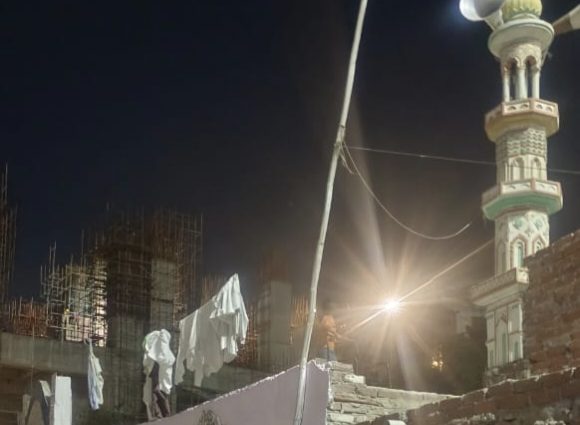New Delhi, April 10, 2024: The Delhi High Court has stepped in to protect a 40-year-of mosque from the demolition squad of the Delhi Development Authority (DDA).
The court on April 8 also issued notices to Dda and the Delhi Religious Committee after Faizyab Masjid and Madarsa filed a petition seeking intervention to prevent its demolition.
The mosque is a registered Waqf property near an Inter-State Bus Terminus in Sarai Kale Khan in south Delhi. The high court intervention is seen as a big relief to Islamic worship places in the national capital.
The Delhi high court acted on a petition filed by the mosque’s caretaker through senior advocate Fuzail Ahmad Ayyubi. Justice Sachin Datta issued a notice to the respondents. The DDA claims ownership of the land where the waqf property is situated, citing acquisition proceedings.
However, Justice Datta directed the DDA to file a status report on the property within a week. The matter has been listed for the next hearing on May 8, during which time the respondents are prohibited from causing any harm to the mosque.
The matter came to light in early April when the local police officials informed the mosque’s administrators and caretaker about impending demolition plans. In response, the caretaker sent letters to the chairman of the Delhi Religious Committee and the Delhi Waqf Board. The letters included documents proving the property’s waqf status and land records.
The caretaker cautioned them against taking any action, emphasizing that the land is not encroached upon and the mosque is a duly registered Waqf property. The mosque’s status as a place of worship has existed since its establishment.
In his petition, Deen Mohammad, the caretaker, submitted to the court that the mosque and Madarsa have existed for more than 40 years and are registered with the Delhi Waqf Board.
The DDA has reportedly requested the Religious Committee to remove the structures, claiming the land is government property acquired through an award.
The petitioner has, therefore, invoked Article 226 of the Indian Constitution, alleging violations of Articles 14, 19, 21, 25, and 30, and sought a writ of mandamus directing the Religious Committee to grant a reasonable opportunity of hearing and consider the documents submitted before taking any decision.
The Religious Committee was formed in 1991 to deal with the removal of encroachments on public land in the form of unauthorized religious structures.
Meanwhile, a delegation from Jamaat-e-Islami Hind (JIH) recently visited the disputed place to study the situation. The JIH delegation expressed solidarity with the mosque’s administration and pledged to cooperate in legal proceedings.
The delegation, after reviewing the situation, advocated for using legal means to protect the mosque’s rights and assured the administration of their full support in safeguarding their religious rights.
Delhi’s mosques and Islamic monuments face repeated targeting by the DDA and Delhi’s religious committee and their cases are with the Delhi High Court.
The case raises concerns about potential violations of the rights of waqf properties and the proper adherence to due process. Critics, Muslim leaders, and experts have already expressed apprehension over the Religious Committee’s actions and questioned its fairness, especially in matters involving registered waqf properties with a long history in the capital.
Source: indiatomorrow.com


The Delhi High Court’s verdict is Good News and a big relief to the Mosque Authorities.